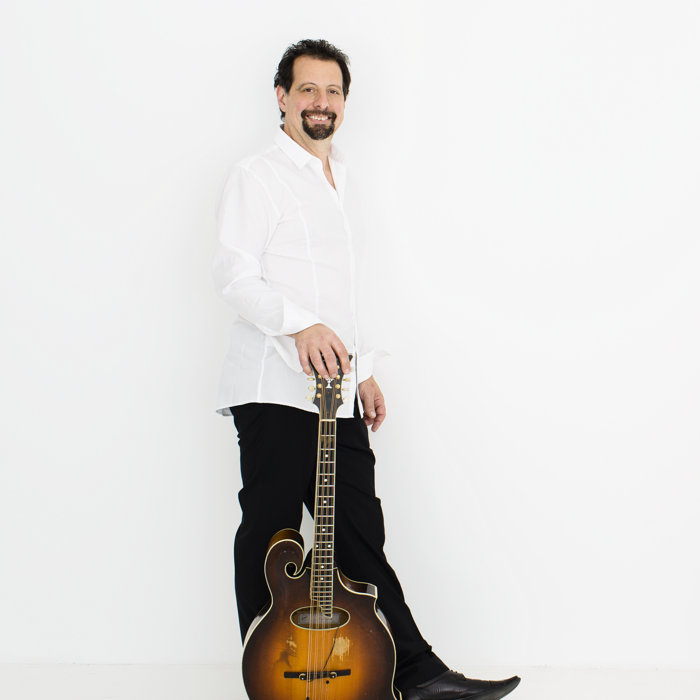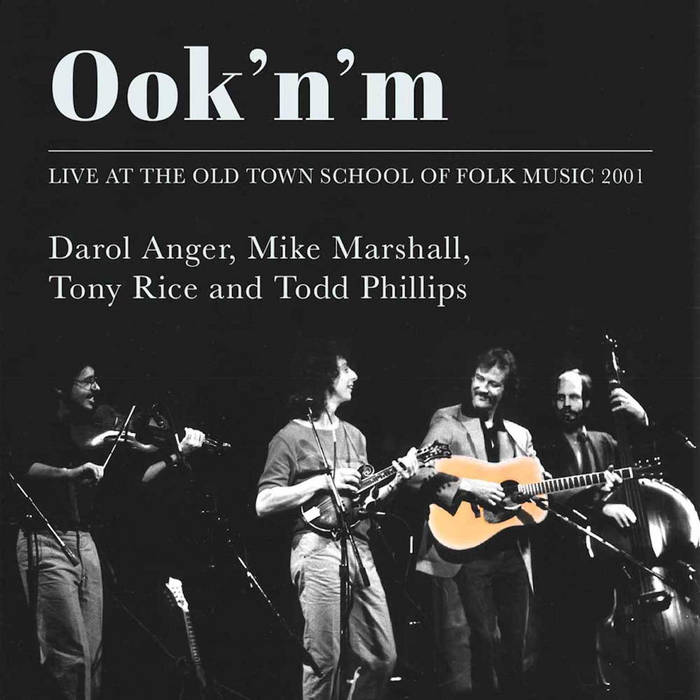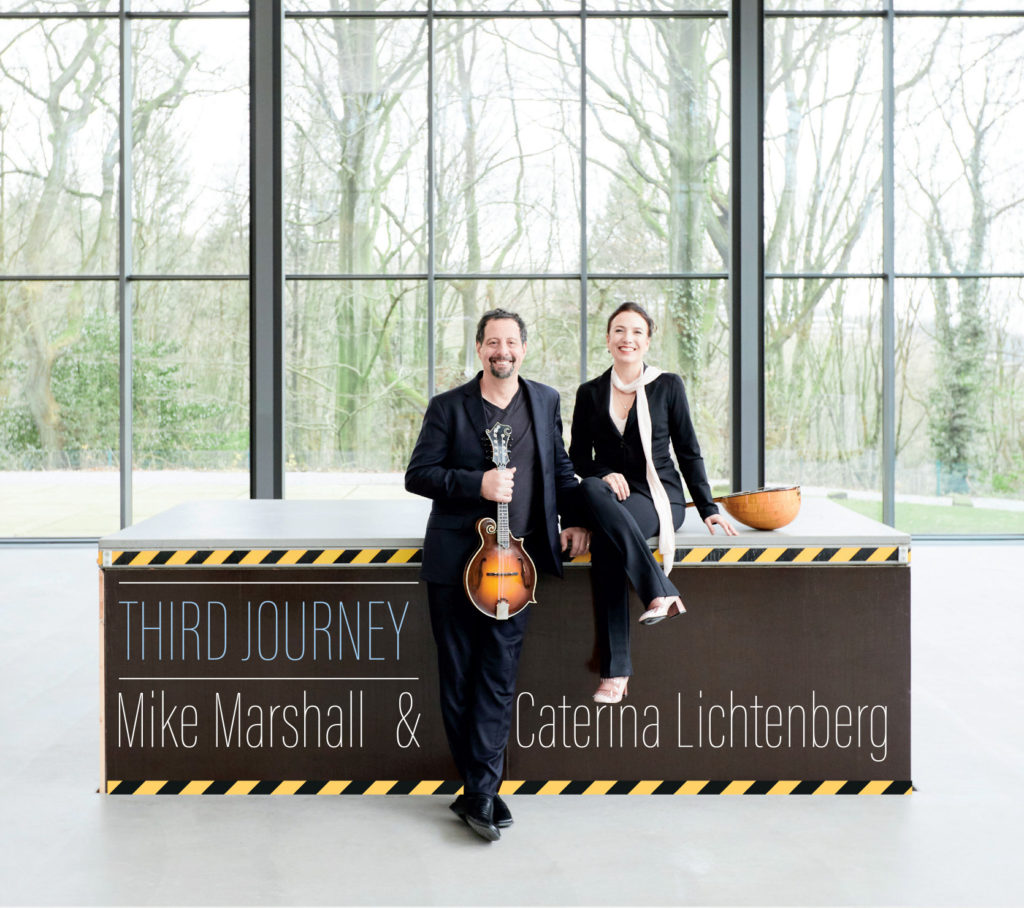SERIES: INTERVIEWS WITH PERFORMING MUSICIANS – Mike Marshall (Part 4 of 4)
November 28th, 2010 | Author: Vicki Ambinder
Here is the fourth and final installment of my interview with multi-instrumentalist, world-touring musician, prolific record producer, and Adventure Music recording artist Mike Marshall. You can find additional information about Mike at the beginning of the first installment. –VA
Are there things that you are afraid of as a performer – things you tend to shy away from doing? Or are you turned on by fear – do you go towards fear?
Mike Marshall: You know, I don’t know. I think we all have our comfort zone. I mean, there are things I don’t like – I don’t like really loud music, so I don’t know if that’s a fear, or I’m just trying to save myself! But I think you have to be in your comfort zone. And yet, I’ve spent my life pushing myself. But you have to push yourself in degrees – you have to step into that unstable part of marshland when you’re actually ready for it. And so I suppose there are some things that I’m not ready to do yet. I’m not sure if it’s fear, though – I think it’s practicality! I know what my boundaries are.
When you were starting out with David Grisman, that must have been kind of scary at times.
MM: Yeah, for sure that was. And I think of those days, and I think about how much of a thick skin that gave me early on. I mean, I moved here [to the San Francisco Bay Area] at age 19, and immediately, the same week that I arrived, all those guys went down to L.A. to record the soundtrack to the King of the Gypsies movie, with a full orchestra and Stéphane Grappelli and Tony Rice and Ray Brown on bass – I mean, it was ridiculous. And I just got thrust into that, and then three months later we were touring and playing Carnegie Hall. So I guess having those kinds of experiences gives you, then, a reference so that nothing can flap you.
Did you get stage fright during that time?
MM: Not really. I mean, there would be moments here or there where I’d be thinking, “Dear god, this is unbelievable.” The first time I saw the [David Grisman] Quintet live, I was in the band. So, you know, that pretty much did it. It was, like, ok, where do we go from here? And the same with Stéphane Grappelli. I remember when we toured all over England with Stéphane’s band – with Martin Taylor on guitar, and Diz Disley and all these guys, and then we were playing, and then we’d all jam at the end on a couple tunes.
Well, we went over to the Continent, and arrived in Brussels without his band, and we were now going to back up Stéphane on all these standards that he was playing, and no rehearsal. He was going to arrive at 7:00 for the 8:00 show, and we had to get there, and then had maybe two hours to work on all this music. You should have seen us scrambling – it was unbelievable. And then I look down in the audience, and there’s Toots Thielemans in the front row – one of the greatest harmonica players, but also one of the greatest jazz guitarists of all time, and I was playing guitar. And then the next night, we’d be in the south of France, and there would be a whole group of Gypsies down in the front, and Stéphane would get so mad. He’d go, “Zose are Django [Reinhardt]’s relatives! Zey always come to ze shows. I hate zis!” And I’m thinking, “Ok, so we’ve got Django’s cousins down in the front row checking out the guitar player tonight. Relaaaaax, chill, have a good tiiiiime!”
“What could possibly go wrong?”
MM: And then you got [Mark] O’Connor – you know, O’Connor’s on guitar, and Darol [Anger]’s on fiddle, so, you know, what’s that do to Darol’s inner strength? And then Mark gets up and plays “Tiger Rag” with Stéphane. It was just a very hot environment – very charged. And so I think that being around those kinds of energy fields kind of toughens you, and makes you understand that you actually don’t ever die from these experiences. You think you’re going to, but in the end, you walk off the stage and you haven’t fallen to pieces! So the next time you’re in a situation like that, you’re kind of built for it or something. I reference off that, playing with Hamilton [de Holanda], playing with Chris [Thile] – how are you going to flap me, if you’re a mandolin player? How are you going to throw me off my game, when I’ve had those guys, you know, sword fighting?
You know, I’ve seen you play with Thile a number of times, and a number of times I’ve been in the front row…
MM: Oh god…
…and I don’t even know how to describe it as an audience member. I find myself sweating, just because I’m working hard, too, you know? And maybe people who aren’t necessarily needing to parse what you’re doing musically aren’t sweating as much.
MM: But you’re actually trying to take it in.
Yeah, I’m trying to keep up with what’s happening with theory, and what’s going on with the emotional expression, and how you’re talking to each other musically. And that happens in the recordings as well, but of course it’s a whole different thing when you’re seeing the communication between you two, the little micro-filaments that are waving in the sea as you’re catching what’s going by. And it seems to me that it must be a combination of energizing and draining at the same time.
MM: I think it’s mostly energizing. Yeah, I remember coming off the stage on all those tours feeling completely jacked up and ready to rock. It gives, it doesn’t really take away. Really inspiring, and kind of mind-boggling – again, getting back to that feeling of feeling super-lucky to get to have these experiences, and get to play with these musicians and be in the same place. Because if you think of, like, [Brazilian mandolinist] Jacob do Bandolim recording at the same time as Django Reinhardt, but they never got to meet, you know? What would have happened?
And I feel like we’re living in a time, now, when all of that is possible. The whole world is right there, available to us, and it’s so easy to reach people and just tap them on the shoulder and go, “Hey, I love what you’re doing – you wanna play?” And that’s an amazing thing we’re experiencing right now. I think it’ll probably be looked back on as kind of messy, because there’s lots of combinations going on that don’t work, too, and people who aren’t really studying traditions and yet they have just enough access to kind of tap into it a tiny bit and show us a shallow version of it. But, there are some great contacts being made, and music is being seen as one thing, which it actually is, instead of being divided up, either socially or whatever those things are that divide. The dividers are never musical – from my perspective, anyway, music is just sitting there being music, and usually the things that separate it are social.
And it seems that part of our DNA is always to need a live performance experience.
MM: No question. I mean, one of the greatest things about the demise of the recording industry is that it’s given value, now, to the live experience, because that is something that you cannot get, you know, you can’t make a copy of that and send it to your friend’s iPhone, you actually have to be there. So I think a lot of great artists are turning to that and saying, “Well, you know, there was a music business before there was a recording music business, and there will be one after, if this thing is going to lose all its value.” It won’t, I mean people will still record, but it just won’t be where they’ll make any money – it’ll become a promotional tool or what have you. And that’s ok, because as musicians, we can float to the next thing. Like I said, if the Church needs us to write a play in 1700, “All right, I can do that”, Bach says. I mean, I have to admit I prefer the stuff he wrote when he was in Cöthen [Germany] working for [Prince] Leopold, who wanted all the instrumental music. But I did come to those cantatas, finally, and I’m loving them.
There’s so much there.
MM: Oh god, just hundreds – it’s ridiculous. But if you get the people who are recording them more recently, in smaller ensembles, it can be really wonderful without all that vibrato, without the operatic singing. There are arguments now that his ensembles in those churches were singing one to a part, so there are some recordings of it that way, which is really wonderful, that stuff that folks in Amsterdam are doing great things with.
Do you find that it refreshes your horizons, your sensibilities, to get out and go to different countries?
MM: Oh god, it’s the whole thing. That’s the other gift that music has given me – it’s taken me all over the world. That’s something I would never have been able to do without it, so it’s an amazing experience. And then to delve deeply into – or, you know, deeper than you can living in Oakland listening to a CD – to actually see some of these musical styles in their native environment, that’s when you really pick up what it is.
How do you experience the cultural differences in the audiences? Do they have different vibes in different places?
MM: Oh, for sure – no question about it. Caterina [Lichtenberg] was saying that she thinks the American audiences are the best. I mean, we are a very relaxed society. I think because we’re so new as a culture, and because we had to kind of deal with lots of different kinds of people who were bumping up against each other from the beginning, we’re so tolerant of differences, compared to most other places.
Some of us are, anyway.
MM: Yeah, I know – it’s not across the board. But, you know, we just did a bunch of concerts on the East Coast, and they were house concerts, so they were super-intimate – I mean, literally just talking to the audience, and they were talking back to us during the show, that kind of vibe – which is so different for Caterina, who grew up in this classical German world, playing in the church, and you might talk once. But she’s a gabber – she always talked a lot in her shows, and it offended some people – they were, like, “Why are you always talking?” But we played this show in Germany and we just did what we did, and you could just feel that our relaxed-ness was almost making the audience uncomfortable, because it was so different than what they were used to. But then you’d crack the ice and you’d warm them up, eventually, and they came around by the end of the show. But there was that initial, “Wow, ok, we’re in a different place here – let’s work this and see if we can make this happen…”
“Let’s see if we can tap into the universal human experience here…”
MM: That’s what everybody wants – that’s why they come. But oh, man, there are these obstacles, sometimes, to get through it. And then, I was just thinking about Japan. We went over there with the Montreux band, and they were just sitting there and they’d clap after the song – no whooping, no hollering – it’s like, Japan. But then I realized, they clapped for a really long time after each song – like, slightly uncomfortable – to where it’s like, “Ok, it’s time for you to stop clapping now so we can play the next song…” And then, the encore after encore after encore – they just wouldn’t stop clapping. And all through the show, we thought we were dying, because it just didn’t feel like the typical – oh, I know what it was, nobody was clapping after a solo. So you’d do some great improvised solo, and in America everybody’s clapping for every solo, and in instrumental music that’s, like, seventeen times a song. And here we are in Japan, and nobody’s clapping for solos. “Oooh, we’re dying,”
Like it’s disrespectful to interrupt you, or something.
MM: It probably was that – you know, you want to hear, you don’t want to mess up the experience of the guy next to you.
And all the clapping afterwards is like the all the bowing that keeps going on and on, and no one knows when to stop bowing.
MM: Exactly! And it was like, “You changed my life.” “Really? I thought you were sleeping…” So, yeah, there’s definitely some cultural things there. But I think it’s all getting mooshed together – people are getting much more like each other.
The world’s getting smaller.
MM: Unfortunately. I think we’ll probably lose some juice there. And hopefully it doesn’t mean we’re all going to be shopping at Kmart – even though that’s what they want.
Where do you want to go next, as a performer?
MM: I want to go back to Brazil, and then to Argentina, and then, when it’s all over, find a little place in northern Italy. Oh, southern Italy would be ok – a little cabin. I would like it to become simpler. I live on the property of a church, a little Episcopal church – I live on a hill up above them. It’s lovely acoustics in this place, and I sometimes fantasize about the audience coming to me.
Well, Levon Helm did it.
MM: Yeah, I would just do regular shows in this place – you know, a hundred people every month – at a very high ticket price!
You know, I would love to be able to perform Bach more often, and have it be really a deep, meaningful experience for me and the audience, and not a treacherous one for me. But I don’t really have those kinds of aspirations, to push the performance envelope in that way. I think that I’m pretty happy with how things go – I just want to do it more. I want to do exactly what I’m doing, with some of the musicians I get to play with, as often as I can.
Thanks again to Mike for being so generous with this fascinating and lengthy conversation. He’s a treat to spend time with, and I don’t think I’ve ever laughed so much during an interview. I encourage my readers to take any opportunity to see him perform live – if there’s a more joyful performer out there, I really don’t know who it is. Mike’s discography is so voluminous and varied, it’s difficult to point a first-time purchaser in any particular direction, but there’s a nice selection at the listening page on his website that can help you decide. Enjoy! –VA



